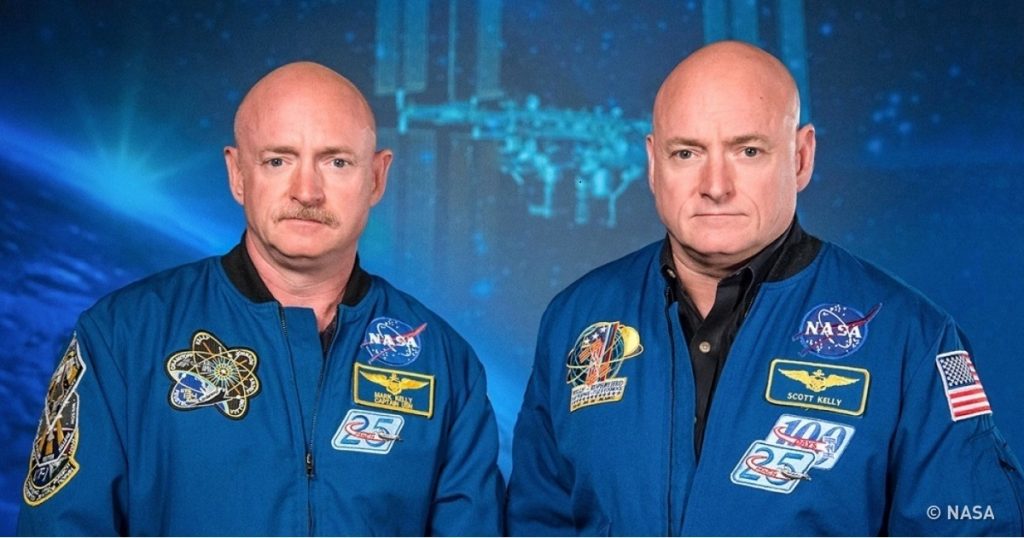The results are back for one of the most curious space studies in space history.

Astronauts Scott and Mark Kelly are identical twin brothers who volunteered to participate in an experiment: While Scott traveled to space for 340 days, his twin brother Mark stayed on Earth. The Twin Study project was created to examine long-term space travel’s effects on the human body. Since identical twins have the same genetic material, this research has given NASA scientists a huge amount of medical data to analyze.
At the ends of the human chromosomes, there are stretches of DNA called telomeres. Their length decreases with each cell duplication. But after many copies, the telomeres get too short, and the cell can’t divide anymore. This is one of the factors that promote aging. Scientists found that his telomeres grew longer while Scott was in orbit than his twin brothers. However, the astronaut’s telomeres returned to their pre-flight lengths shortly after returning to Earth.
One other fantastic result from Twin Study is that during his year in space, Scott’s DNA became slightly different from that of Mark. Again, these indicators also returned to their previous level after some time on earth. It’s unclear what these findings mean since they are incomplete, and NASA plans to conduct research with other astronauts too.
But this experiment makes you think of Einstein’s Twin Paradox and theory of relativity, telling us that time will slow down for you as you approach the speed of light. Scott could have returned home younger after spending a year in space. But maybe one day, this experiment will show how to stop the aging process.
If you know someone who might like this, please click “Share!”
